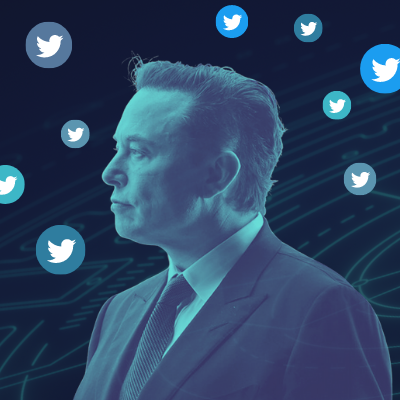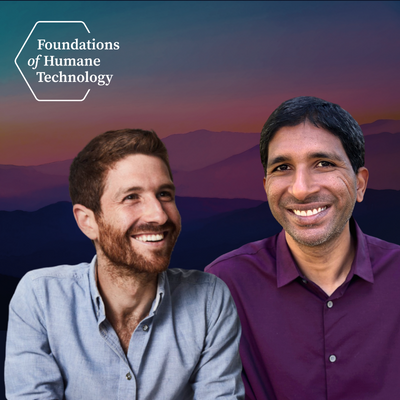
Your Undivided Attention
Co-hosts Tristan Harris, Aza Raskin, and Daniel Barcay explore the unprecedented power of emerging technologies: how they fit into both our lives and a humane future. Join us every other Thursday as we confront challenges and explore solutions with a wide range of thought leaders and change-makers.
Your Undivided Attention is produced by Executive Producer Sasha Fegan and Senior Producer Julia Scott. Our Researcher/Producer is Josh Lash.

Spotlight
A Bigger Picture on Elon & Twitter
If Elon Musk owns Twitter, what are the risks, and what are the opportunities? In order for Twitter to support democracy — and Musk’s goal of becoming a multi-planetary civilization — we need a radical redesign that goes beyond free speech. Note: this conversation was recorded on April 21, 2022, 3 days prior to an official announcement that revealed Elon Musk and Twitter reached a purchase agreement for $44 Billion.

Episode 50
What Is Civil War in the Digital Age? with Barbara F. Walter
What are the generator functions for civil war in the digital age, and how do we prevent them? This week on Your Undivided Attention, we're joined by Barbara F. Walter — one of the world's leading experts on civil wars, political violence, and terrorism, and the author of How Civil Wars Start: And How To Stop Them.

Spotlight
What Is Humane Technology?
How do we develop the wisdom we need to responsibly steward exponential technology? This week on Your Undivided Attention, we're introducing one way the Center for Humane Technology is attempting to close the wisdom gap — our new, free, online course, Foundations of Humane Technology.

Rerun
Digital Democracy is Within Reach with Audrey Tang
Audrey Tang, Taiwan's Digital Minister, helps us imagine a world where every country has a digital minister and technologically-enabled legislative bodies.

Episode 49
The Dark Side Of Decentralization with Audrey Kurth Cronin
These days, there's enthusiastic talk about the possibilities of decentralized technologies, like cryptocurrencies and 3D printing. But decentralization is cast in a different light when we're talking about decentralized weaponry. This week on Your Undivided Attention, security expert Audrey Kurth Cronin guides us in an exploration of decentralized weaponry throughout history, how social media is a new decentralized weapon, and how to wisely navigate these threats.

Episode 48
The Invisible Influence of Language with Lera Boroditsky
One of the oldest psycho-technologies we have is language. How do the words we use influence the way we think? Further, how can we inoculate ourselves from their undue influence — and consciously design language that helps us meet our most complex challenges? This week on Your Undivided Attention, we're grateful to have cognitive scientist Lera Boroditsky.